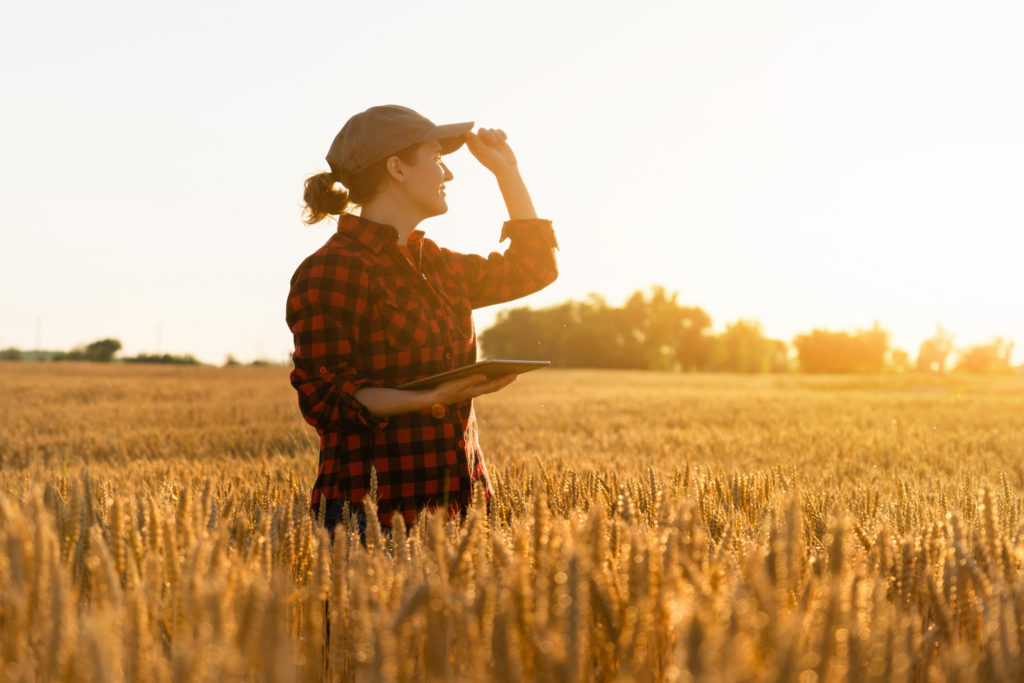
If You’re Looking for Agribusiness Solutions, Look to the Sky
There are more than 8,000 satellites orbiting the Earth today — and almost as many different jobs they’re doing up there.
Satellites have been helping humans solve problems for years. From capturing solar power to enabling global communications to viewing the deep reaches of space, satellites have been behind some of the biggest technological advancements of the past 50 years.
But now, we must look to the next 50 years. The world’s challenges are only becoming more complex — and this is especially true when it comes to the agri-food supply chain.
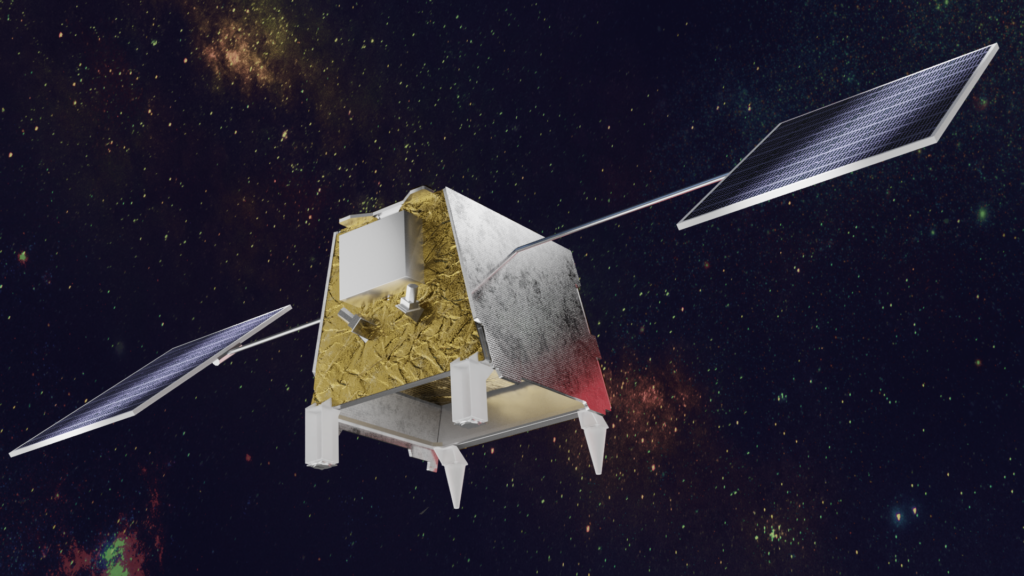
Overpopulation has crop producers scrambling to keep up. Food insecurity is a daily hardship for millions of people. And the growing threat of climate change stands to drastically destabilize agricultural production around the world.
Every day, these challenges are becoming increasingly urgent, yet they’re challenges that no single entity can solve on their own. The issues facing today’s agri-food supply chain are interconnected and multidisciplinary — which means they need a solution that is also interconnected and multidisciplinary.
So, we look to the sky — more specifically, to those satellites in the sky.
Mitigating Agribusiness Risk From Space
At their core, the challenges facing today’s agribusinesses stem from risk — unknown weather conditions, unknown crop progress, unknown supply gaps. Phrased differently, the issue lies in a lack of data.
In the past, agribusinesses could rely on traditional methods of risk management to get data on crop health — methods like manual inspections or drone monitoring. Today, though, old school methods of crop monitoring are no longer up to the task.
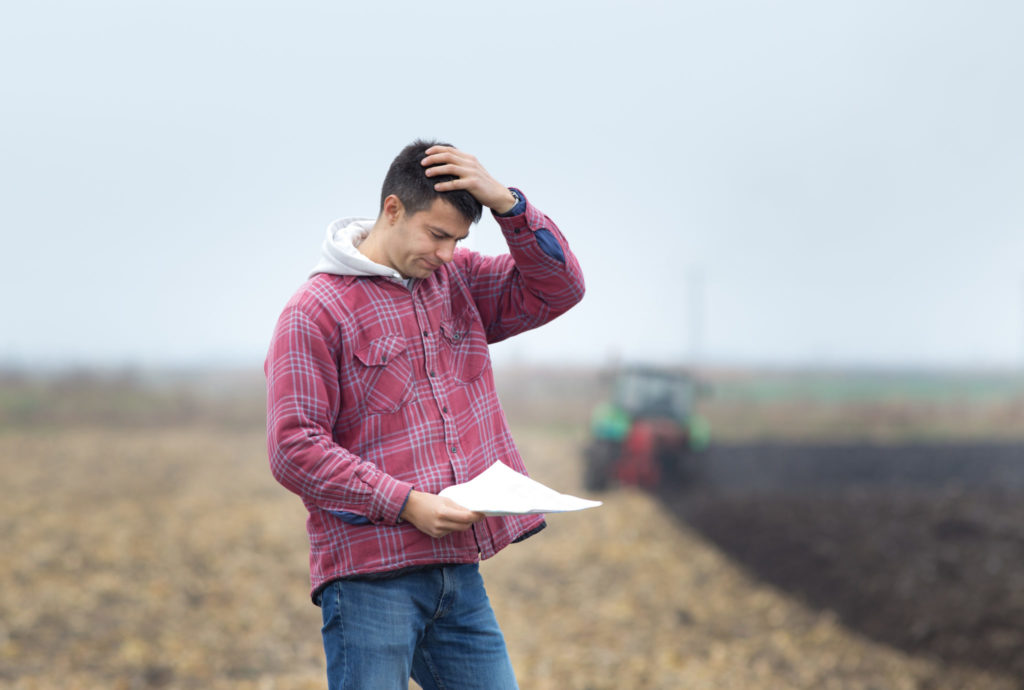
Modern agriculture is a sophisticated, global business. And while traditional means of crop data collection worked once, these methods were designed for an industry that was vastly different from our system today. Global agribusinesses need global solutions — solutions that are scalable, time-efficient and cost-effective.
In other words, agribusinesses need satellites — Earth Observation satellites, to be precise.
How Earth Observation Powers Agribusiness
Orbiting the globe on a daily basis, Earth Observation satellites capture a range of data about conditions on the planet’s surface — conditions that ultimately impact the health, supply and price of agricultural crops.
But this isn’t just about taking pretty pictures — Earth Observation satellites collect scientific-grade data across a range of visible and invisible frequencies to give agribusinesses near real-time insights on crop health so they can take action proactively in support of the farmers who feed the world.
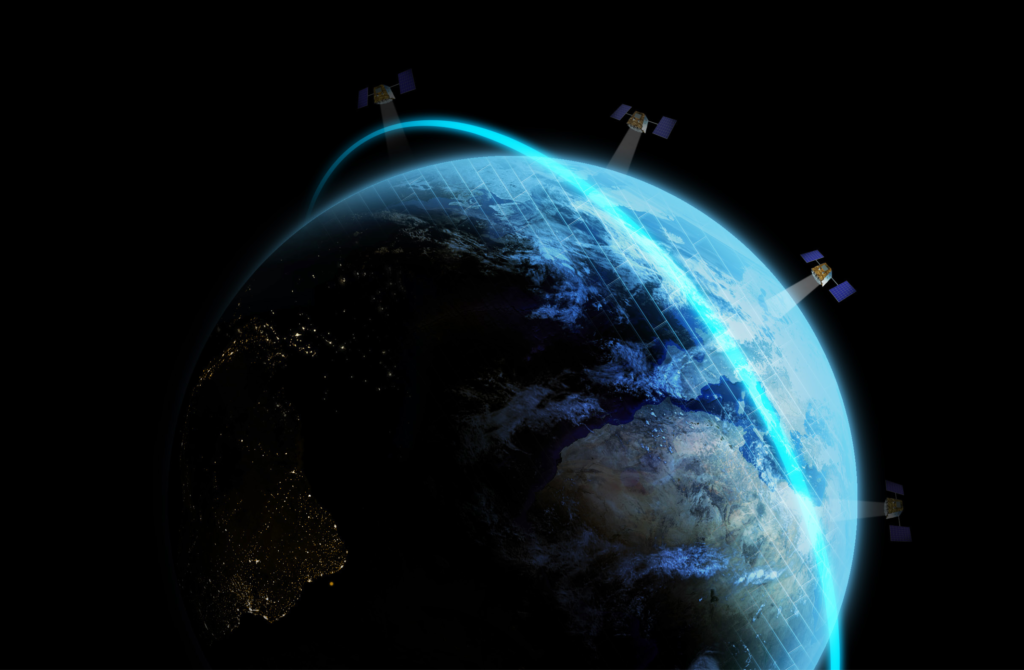
And with a technology as powerful as Earth Observation, we as an Earth Observation leader are committed to using that power for good.
Putting Principles Into Action
It’s impossible to overstate the impacts of the war in Ukraine. And as the conflict stretches on, it’s posed a particular challenge to Ukrainian farmers.
Ukraine is one of the breadbaskets of the world, producing staple crops such as wheat, barley and corn that not only feed its own population but also get exported around the globe. Russia’s invasion of the country has crippled the livelihood of Ukrainian farmers.
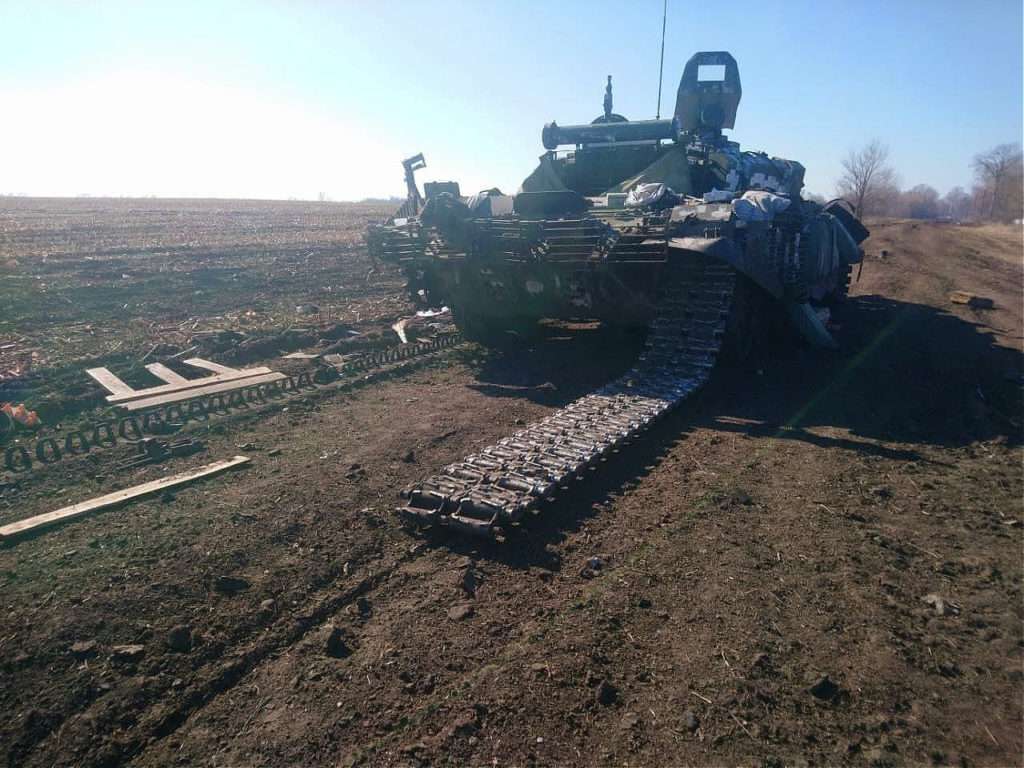
EarthDaily Agro is comprised of many longstanding members of the agricultural community — and as soon as the situation in Ukraine unfolded, it was clear we couldn’t just sit on the sidelines. As a first step, we withdrew our operations in Russia and relocated at-risk employees. It was then that we realized the potential to do more.
Every day, Earth Observation helps farmers maximize their success. It can pinpoint which field zones need fertilizer, optimize water use, even catch early warning signs of pest infestations. Amidst the war in Ukraine, these insights could be harnessed as a force for good.
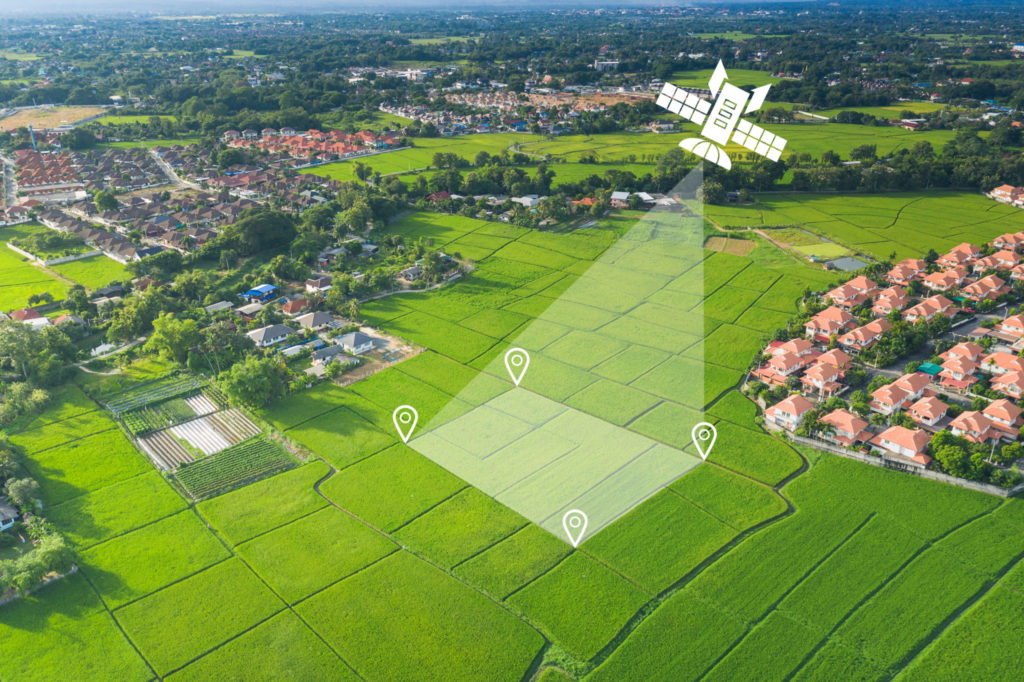
Supporting Those Who Feed the World
Despite facing armed military aggression, many Ukrainian farmers had no choice but to carry on. Their families were depending on their livelihood, their communities were depending on their crops, and the world was depending on their exports. But producing a harvest in the face of war promised to be a challenge that none of Ukraine’s farmers could have ever imagined.
With the stakes higher than ever, every incremental unit of production took on heightened importance. Maximizing yield and efficiency with the limited resources at hand had never been more crucial for the farmers of Ukraine.
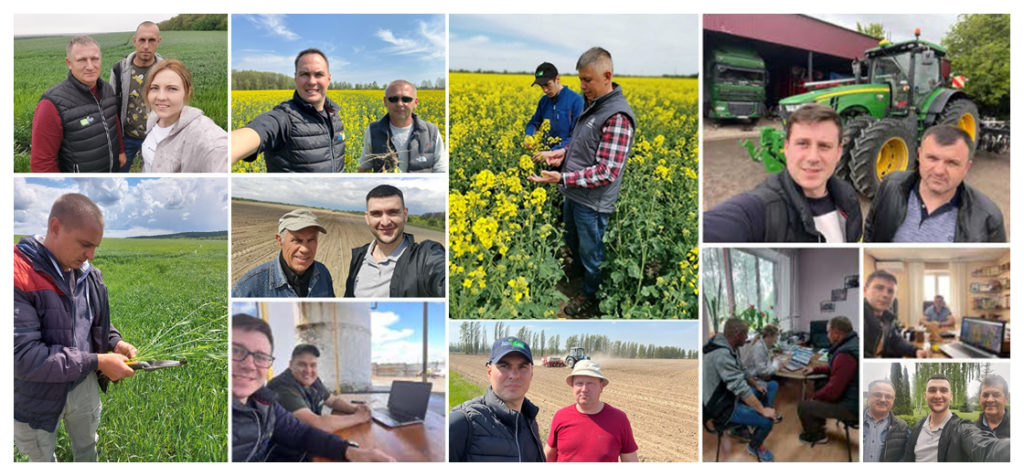
To support Ukrainian farmers in their time of need, EarthDaily Agro provided an in-kind donation of its services to help them protect the health of their crops. Using Earth Observation, EarthDaily Agro worked alongside more than 90 impacted farmers to support more than 1.5 million hectares of Ukrainian farmland.
Stepping Up for the Global Community
The work didn’t stop there, though. The interconnectedness and globalization of today’s agrifood supply chain means its challenges are also interconnected and global. Decreased crop production in Ukraine promised to create shockwaves throughout the global market. Countries that depended on Ukrainian crops would see their supplies evaporated.
To make matters worse, while war decimated crop output in Ukraine, heat and drought impacted crops in other major producing regions of the world. Suddenly, global food supply was in double jeopardy — and resource-scarce nations that were already food-insecure were the most at risk.
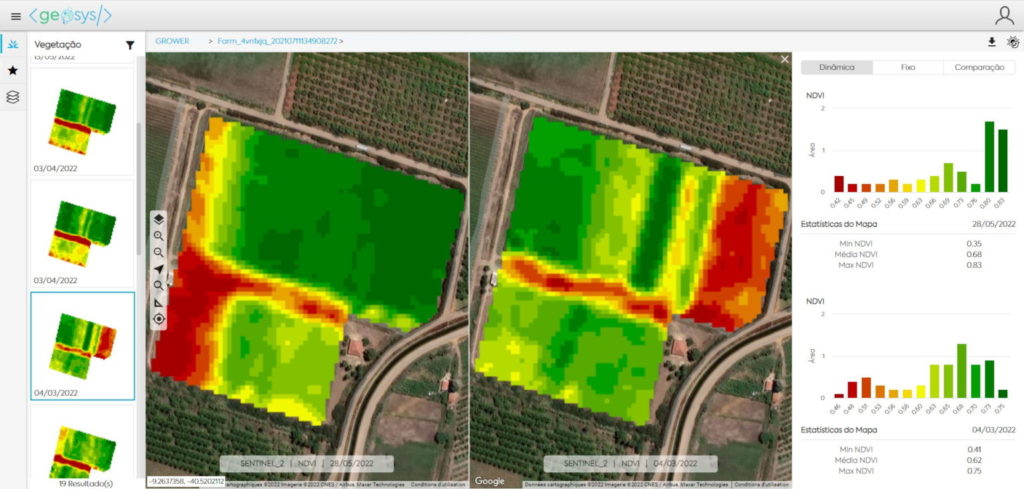
Again, EarthDaily Agro recognized duty calling. Monitoring crop conditions worldwide, EarthDaily Agro produced an ongoing series of free-of-charge global crop reports providing insights to help organizations take proactive action in support of food security. With data sourced from Earth Observation, the reports helped organizations flag early warning signs of production distress, supply gaps and more.
Rallying an Industry for Good
That wasn’t the end of it, though. Remember me saying that no one can solve agriculture’s challenges on their own? At EarthDaily Agro, we take that to heart — which is why we mobilized an industrywide task force comprised of agribusiness leaders dedicated to supporting Ukraine with pro bono agricultural services.
With EarthDaily Agro at the helm, the Support Ukrainian Farmers Coalition combined the strengths of more than 50 diverse industry, government and NGO partners — all united by a mission to support the farmers of Ukraine.

As the Coalition’s one-year anniversary approaches, its work is poised to carry on. Thanks to the success of the program, it continues to grow and evolve. We at EarthDaily Agro greatly look forward to what this joint effort can become to advance the greater good.
A Conduit for Collaboration
Today’s agriculture industry is a collective accomplishment. And as it continues to advance, Earth Observation is advancing along with it. EarthDaily Agro and our parent company EarthDaily Analytics are currently building a next-generation constellation of Earth Observation satellites. Launching in 2024, the EarthDaily Constellation will be the world’s most powerful form of Earth Observation.
With the new constellation, agribusinesses will gain deeper visibility into global crop conditions than ever before possible, helping them manage risk with confidence. Lenders will be able to project their borrowers’ crop outputs, insurers will be able to forecast risks to their policyholders, commodity traders will be able to capitalize on real-time market opportunities, and food and beverage companies will be able to protect their raw goods supplies.

It may be true that the interdependence of today’s agri-food supply chain makes solving problems more complex, but if there’s one thing we know at EarthDaily Agro, it’s that that very same interdependence is what makes agriculture so collaborative.
EarthDaily Agro’s technology is best-in-class, but at the end of the day, we’re only half the equation. The other half comes from our partners who are taking on some of today’s most complex challenges. It’s by working together that the agri-food supply chain can be made more reliable, more secure and more resilient. So, let’s get down to work.
Curious to learn more? Check out the podcast episode below from The Marketing Accelerator.
About the Author

Andrew Mullin is Vice President of Marketing for EarthDaily Agro. With broad leadership experience spanning startups to Fortune 500 companies, Mullin brings over 15 years of marketing expertise to EarthDaily Analytics. He holds an MBA from the University of St. Thomas Opus College of Business.
